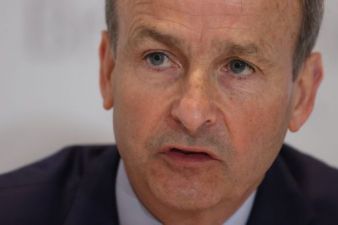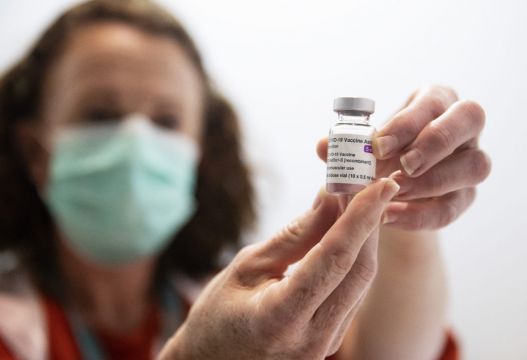The Government is weighing up the “risk equation” of vaccinating younger people against the coronavirus with AstraZeneca’s shot, according to experts.
The preference among experts spoken to by The Irish Times is to stick with the current policy of vaccinating younger people with mRNA vaccines from Pfizer and Moderna, if they are available.
It comes after the Taoiseach said vaccines from AstraZeneca and Johnson & Johnson should be reconsidered for younger age groups to fight the spread of the Delta variant.
Speaking at a meeting of the European Council in Brussels on Friday, Mr Martin said the “balance of risk” had changed due to the Delta variant.
Chief medical officer Dr Tony Holohan is to consult with the National Immunisation Advisory Committee (Niac) on the issue, which previously advised the vaccines not be given to people under 50 over concerns around rare incidents of blood clotting.
Supply and efficacy
The Government should stick to its initial mRNA strategy based simply on efficacy, according to professor of infectious diseases at the Royal College of Surgeons in Ireland Sam McConkey.
“Moderna or Pfizer; if we got a large number of mRNA vaccines that would be preferable,” he said.
“I’m not sure it should be a priority for us to change our national guidelines to AstraZeneca.”
Prof McConkey pointed to a recent study from Public Health England that examined vaccine efficacy, which found both the Pfizer and AstraZeneca vaccines to be highly effective against the variant after two doses.
However, he pointed to a key difference that Pfizer offered 88 per cent efficacy against symptomatic Covid-19 after the second dose, compared to just 60 per cent with AstraZeneca.
‘Risk equation’
Meanwhile, UCD virologist Dr Gerald Barry said vaccine supply was a key factor in the debate, adding that the Government was weighing up a “risk equation”.
“I would always favour the mRNA vaccine in this age group as much as is possible,” he said. “[But] if it’s the only thing on the table, then AstraZeneca is the one to go for.”
This was based on the understanding that the coronavirus continues to pose more of a threat than the vaccine, he said.
“That’s the risk equation that they are weighing up,” he said. “The risk of the disease against the small risk associated with the vaccine.

“I would caveat that by saying it’s completely dependent on the supply of the vaccine. If it was the case that we only had to pause for two or three weeks then that’s a different question. If there was only a two or three week delay you would be better waiting.”
Waiting
Dr Barry said it would be better to wait to use mRNA vaccines in this scenario of a short delay in supply, because getting a second dose of these vaccines is quicker — about three to four weeks between doses, compared to eight weeks for AstraZeneca.
Dr Barry also raised concern that the Government could face a communications challenge in selling AstraZeneca’s relative benefits to younger people, due to the shifting age profiling advice around the vaccine.
In Ireland, 84 per cent of new coronavirus infections are now in those aged 45 and younger.







